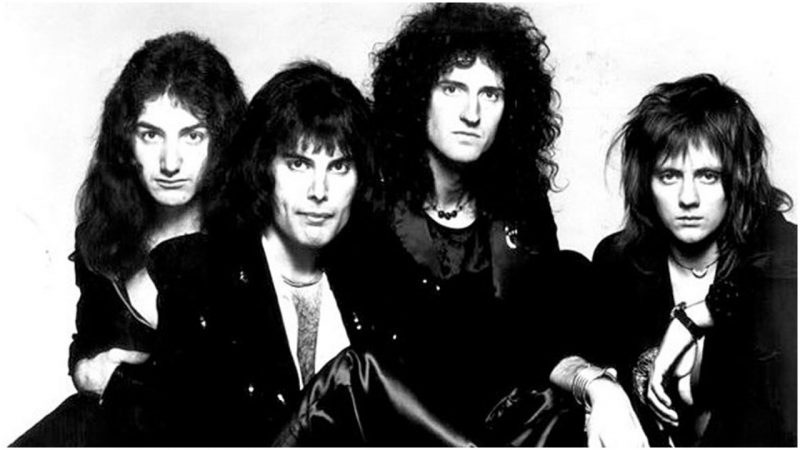On April 20, 1992, one of the most astounding assemblies of musicians gathered together to pay tribute to Farrokh Bulsara, better known to the world as Freddie Mercury.
By that date, it had been six months since the life of the legendary singer had passed. The death of Queen’s frontman followed after complications of bronchopneumonia brought on by AIDS, however, his legend lives on.
Undeniably memorable for his flamboyant stage persona and mesmerizing vocal capabilities, the remaining members of Queen, John Deacon, Brian May, and Roger Tayler decided with their manager Jim Beach to organize a concert to celebrate and cherish the life and times of Freddie Mercury. The concert also aimed at fundraising money for AIDS research and spreading awareness about the notorious disease. May and Tayler announced the plans for the concert at the annual BRIT awards ceremony in February 1992.
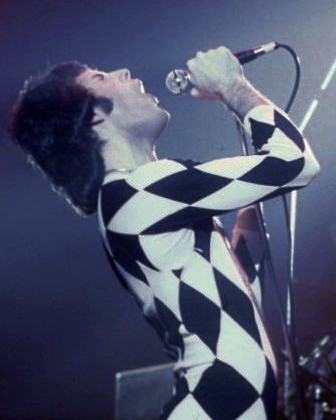
Within just three hours after the tickets had gone on sale for The Freddie Mercury Tribute Concert for AIDS Awareness, all 72,000 tickets were sold out, regardless of the fact that no performers were announced apart from the remaining members of Queen.
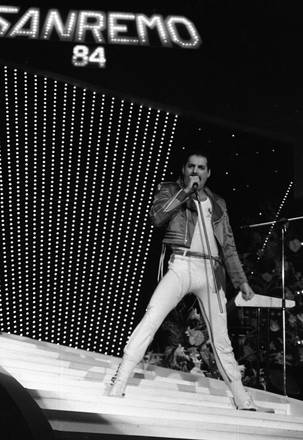
The monumental concert became a reality on Easter Monday, 20 April, when the audience of 72,000 gathered at Wembley Stadium in London.
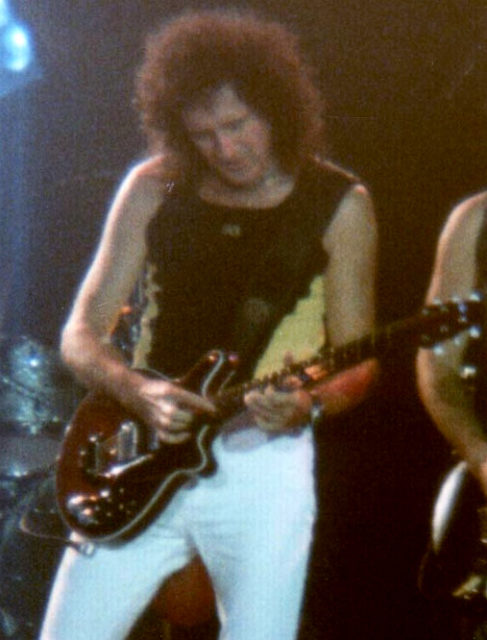
CC BY-SA 3.0
At the tribute concert, the Queen guitarist had greeted the audience with the following words, “Good evening Wembley and the world. We are here tonight to celebrate the life, and work, and dreams, of one Freddie Mercury. We’re gonna give him the biggest send-off in history!”
The show consisted of two parts: the first one started off with short sets from bands that were influenced by the music of Queen. These included Metallica, Extreme, Def Leppard, and Guns N’ Roses. Videos honoring Freddie were shown in between the acts. The second half featured remaining members of Queen along other eminent guest stars who showed up to perform the greatest hits of Queen.
As far as talent on-stage is regarded, the lineup of the Freddie Mercury Tribute concert was simply striking. For instance, David Bowie and Annie Lennox performed a touching and emotional duet of “Under Pressure”. Elton John and Axel Rose energetically performed the ultimate anthem, “Bohemian Rhapsody”. Extreme made a fantastic medley of “Love of my Life” and their own “More than words”.
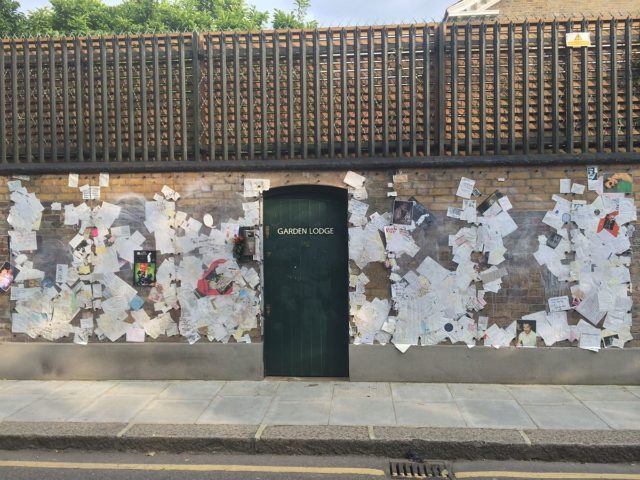
CC BY-SA 3.0
Guest performers also featured Roger Daltrey from The Who, Tony Iommi from Black Sabbath, Robert Plant from Led Zeppelin, George Michael, Paul Young, Lisa Stansfield, Liza Minnelli, Seal, and others. The majority of these performers remained appraised figures in the music industry decades after the concert, and if that is not a testament to the power of Freddie Mercury and his band over the music industry, then what else can be?
The concert was broadcasted live on television and radio to 76 countries worldwide. It is estimated that around one billion people followed through the stream. The profits from the Wembley spectacle were used to launch the AIDS charity organization, The Mercury Phoenix Trust.
